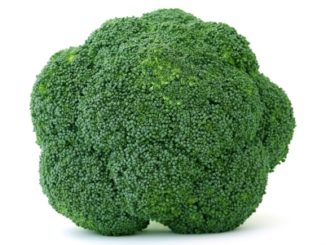
Metabolism is a term that pops up frequently when you’re reading about dieting and nutrition. And while most of us are aware that we need to have a faster metabolism in order to burn more fat, we might not realize what the metabolism really is and why it’s so important.
To improve your dieting knowledge, let’s learn about metabolism and what it means for your body.
What is the metabolism?
The simplest answer to the question of what metabolism means for your body is it’s the rate at which your body burns energy. Every thing we do requires some form of energy – breathing, digesting, etc. And when we’re moving fast, we need more energy.
So, in order to work at out peak efficiency, you need to have a faster metabolism in order to access the energy stores that you have. In terms of how metabolism works with your body in regards to dieting, the faster your metabolism, the more calories you will burn, even when you’re not doing anything. So, it’s in your best interest to learn about increasing your metabolic rate.
Is a Fast Metabolism Necessary?
Your metabolism is what helps you get the energy you need. When you have a sluggish metabolism, you can feel tired and weak.
There are a number of things that can affect your metabolism:

1: Muscle Tissue
The more muscle you have, the faster your metabolism is in order to support that muscle. This is the reason that men tend to have faster metabolisms than women – they tend to build muscle more easily.
2: How Often You Eat
Just like any fire, the more often you feed it, the longer it will burn. When you have too much time between meals, your metabolism can slow down, causing you to burn fewer calories.
3: What You Eat
When you’re eating foods like dairy and protein, you can increase your rate of metabolism. This is also the case when you drink green tea, eat foods with vitamin C and try to consume more spicy foods.
4: How Often You Work Out
The more active you are, the more your metabolism has to work to access energy. So, if you want to increase your metabolism, it helps to exercise more frequently and at a higher intensity.
5: How Much Water You Drink
When your body is dehydrated, it can’t function at its highest efficiency. In order to make sure that you’re hydrated, most professionals recommend at least six glasses of water each day.
6: Who You’re Related To
Faster metabolisms tend to run in families, so if your mother or father has a faster metabolic rate, you will too. Of course, this doesn’t mean that if they did not have a fast metabolic rate that you won’t – you can always change it.
7: The Hormones That You Produce
Those with lower metabolisms might be suffering from hypothyroidism. This is when the thyroid is not producing enough hormones to regulate your metabolism.
On the other hand, you can also produce too many hormones, resulting in hyperthyroidism which can cause you to have troubles keeping weight on. If you’ve changed your diet and exercise, but still can not lose weight, you may want to check with your doctor to see if it may be your thyroid.
8: The Stress That You Have
If you’re constantly stressed out, you might be lowering your metabolism as well. When your body can’t work to its peak capacity, it causes everything to slow down.
Can you change your metabolism?
The best part of your metabolism is that it’s not set in stone. You can change your metabolic rate for the better and create a more energetic you. What you need to keep in mind are these factors that affect it and then make small change to increase your overall rate.
Simple Changes To Increase Your Metabolism:
- Adding strength training to your daily routine
- Eating more dairy and protein
- Increasing activity levels
- Drinking enough water
- Eating more frequent meals
Over time, your body will be running more efficiently, which will allow you to burn more calories without even trying. And once you’ve increased your metabolic rate, it’s even easier to maintain it.




Be the first to comment